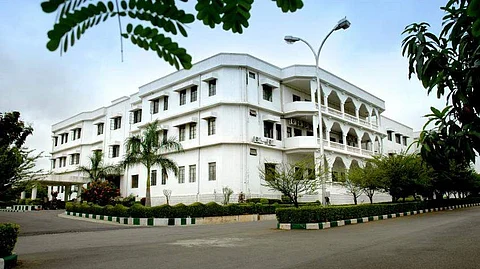

Following a year of gastronomical hurdles that included hygiene and food safety concerns at the Indian Institute of Information Technology (IIIT) Hyderabad, the institute’s Mess Office informed the students on Saturday, December 28 about several policy changes that would take place in the mess system.
These policies, which were to be implemented with immediate effect include:
Mess registrations to take place through an Integrated Management System
All four mess halls on the campus, ie North, South, Kadamba and Yuktahar won’t allow registrations beyond their fixed capacity
Students must register for a single mess for an entire week instead of registering for every meal
Students can no longer avail of unregistered meals for payment
Kadamba mess would be taking in only non-vegetarian registrations
Meals need to be cancelled four days in advance, and cannot be re-registered once cancelled
According to Ping!, an independent media portal based out of IIIT Hyderabad, the Mess Office claimed in its mail that these changes are being introduced because of the renovations and restructuring at the Kadamba mess, and the inconvenience they have been posing.
The Mess Office also claimed that these changes served to lessen the workload of the mess staff.
To recall, the Kadamba mess was rocked by incidents of food contamination over the past year, especially by pests such as ants, frogs, lizards, worms and flies, and even a food poisoning outbreak in June this year.
However, members of IIIT Hyderabad’s Student Parliament told Ping! that their suggestions have been ignored by the Mess Office, and that they are trying to “push back” against these policy changes.
In addition, Ping! reports a “dissatisfaction over the new mess policy”, with detractors claiming that it was a “backward step from an otherwise flexible mess system that worked mostly fine for several years now.”
When the media portal reached out to one Prof Girish, the Chairperson of the Mess Office with questions, they were told that the “decisions regarding the mess system were taken after a lot of discussion and thinking,” and that he is ready to “explain it to a small group” of student representatives, as relaying answers via email would be difficult.
